Why you can trust Tom's Hardware
To read about our monitor tests in-depth, check out Display Testing Explained: How We Test Monitors and TVs. We cover brightness and contrast testing on page two.
Uncalibrated – Maximum Backlight Level
To see how the Raptor 27 stacks up against the competition, we’ve brought in four DisplayHDR 400-certified monitors: the Aorus CV27F, Aorus CV27Q, Acer Nitro XV273K and Acer Predator XB273K. We’ve also included the ViewSonic Elite XG350R-C ultra-wide with HDR10.
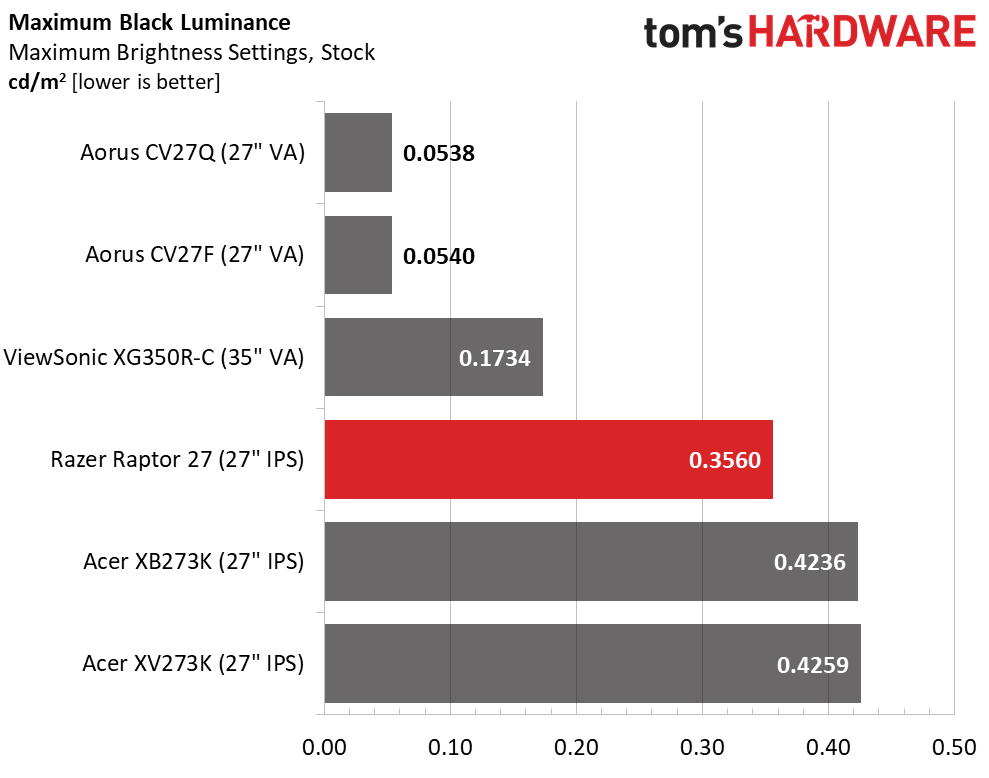
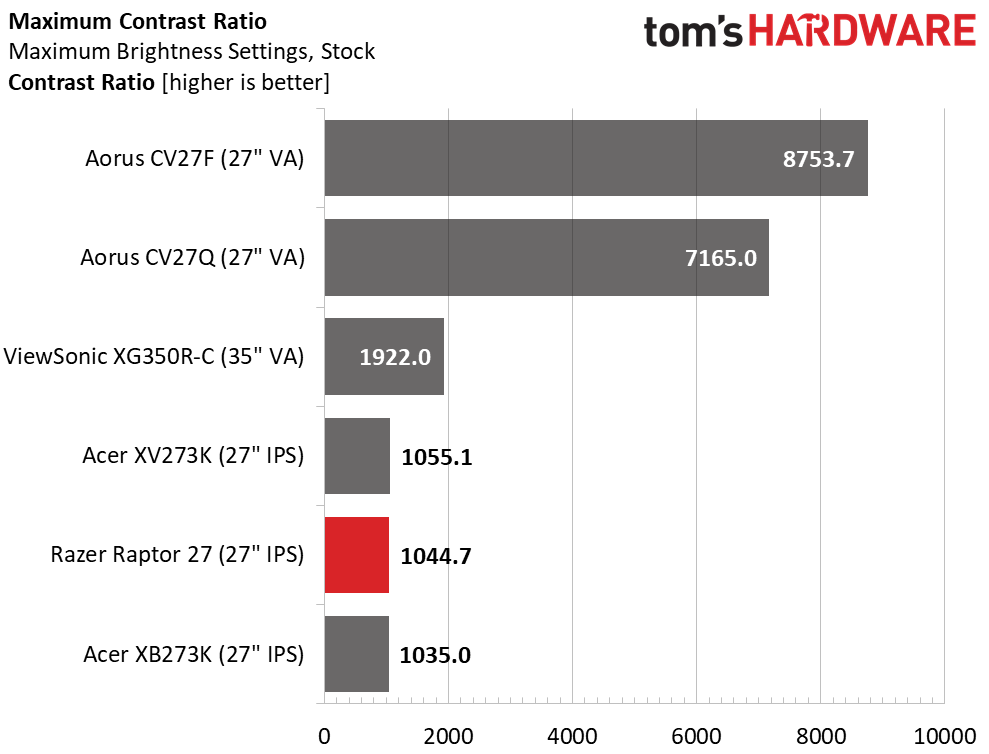
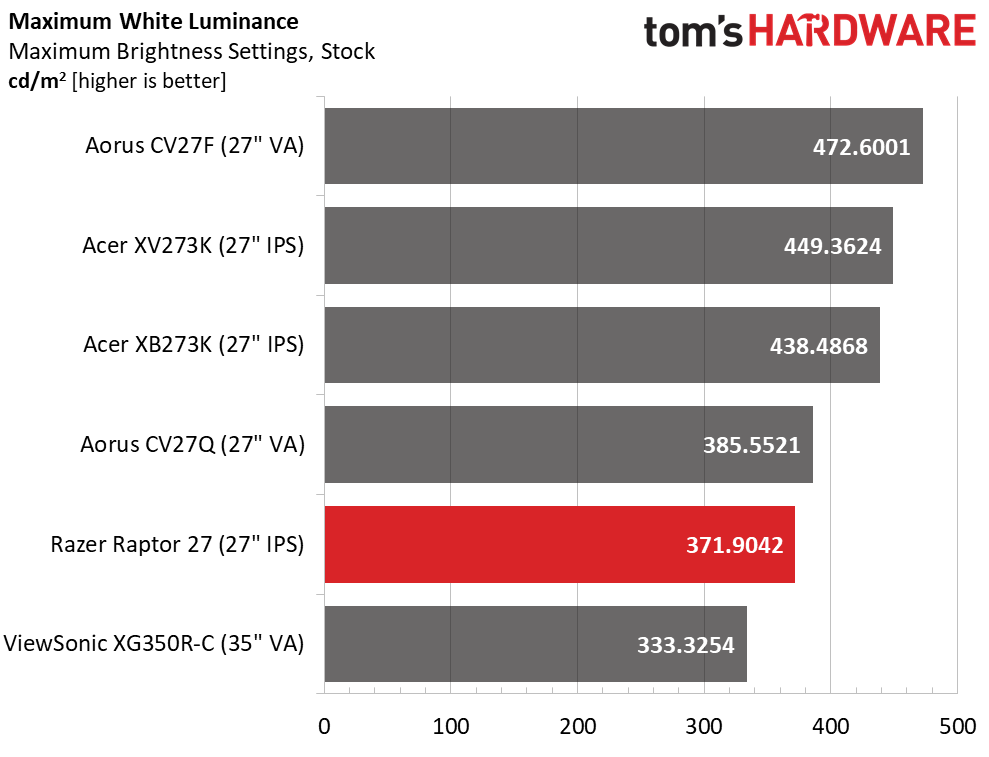
According to our testing, the Raptor 27 won’t quite hit 400 nits in SDR mode. But that’s not a problem unless you plan to use it outdoors or in an extremely sunlit room; 371.9 nits is plenty of output. The monitor gives you a narrow range of control over the backlight, however. With brightness set to 0, it still put out 100 nits. In a totally dark room, that’s fatiguing. We’d prefer a minimum brightness closer to 50 nits.
The Raptor 27 has the best black level among the other IPS panels here, and it manages just nearly 1,042:1 contrast, which is respectable. As usual, the contrast awards go the monitors with VA panels, which typically have much deeper blacks.
After Calibration to 200 nits
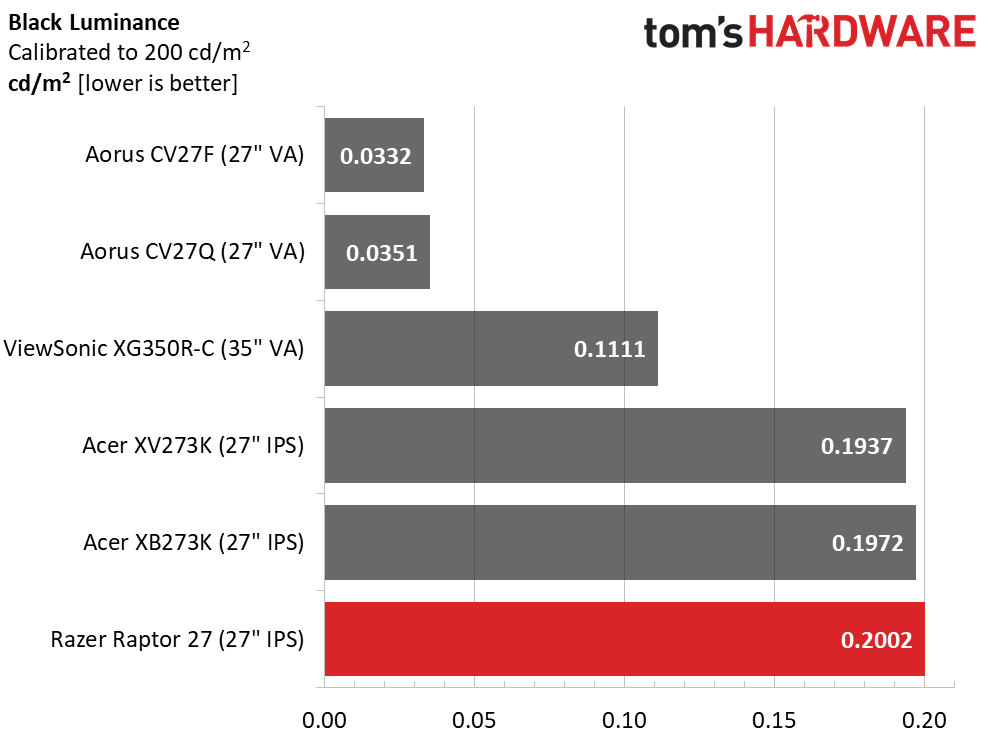
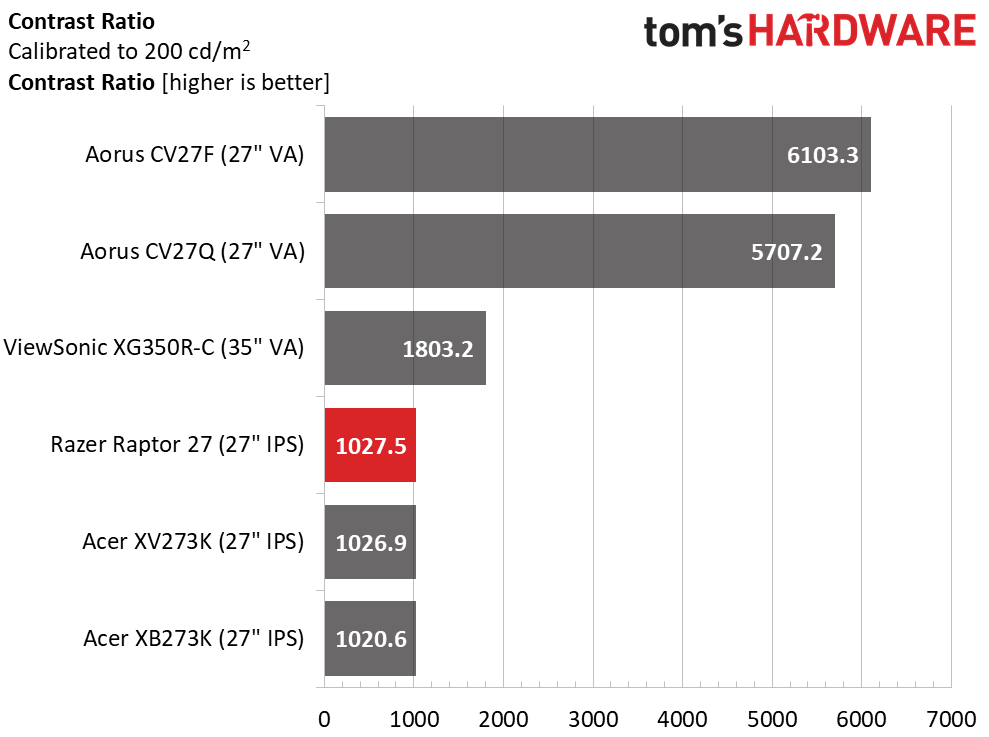
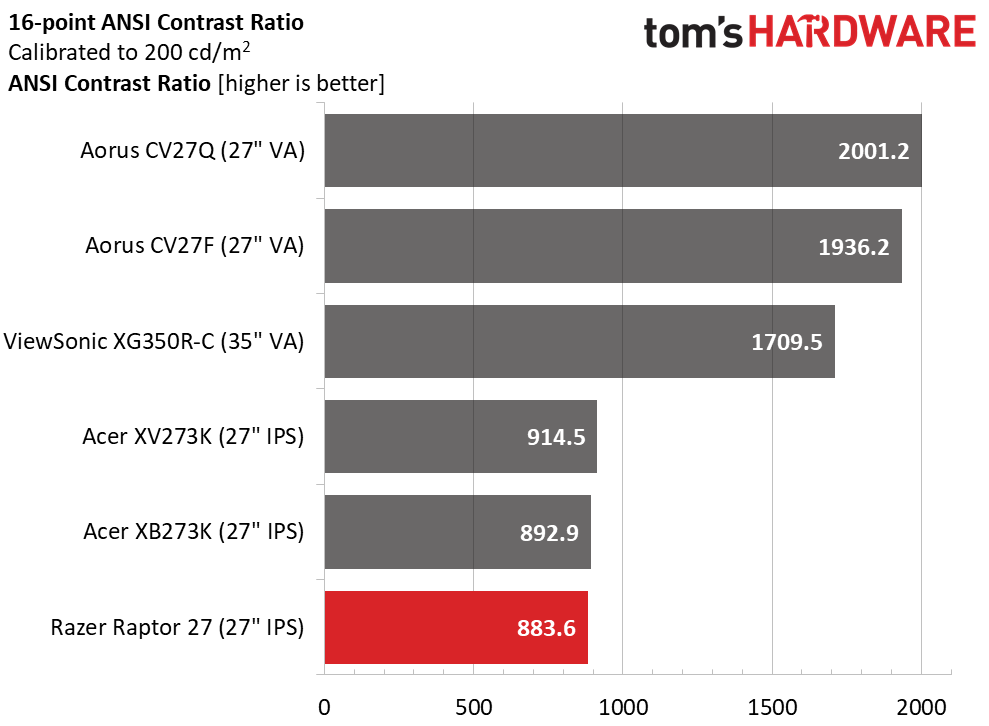
After calibration (see our recommended settings), the IPS screens are visually indistinguishable. While the image still paled in comparison to VA monitors, the Raptor achieved a contrast ratio of 1,027.5:1, and anything over 1,000:1 is a good result. Remember, this is strictly an SDR test (HDR results are on page 4).
The Razer’s ANSI result is about average when compared to other IPS monitors. Our sample showed slight hotspots in the upper-left and lower-right corners, which lowered the score a little. Overall, though, the image was solid with good depth and dimension. Color was vibrant too, thanks to that huge color gamut.
MORE: Best Gaming Monitors
Get Tom's Hardware's best news and in-depth reviews, straight to your inbox.
MORE: How We Test Monitors
MORE: All Monitor Content
Current page: Brightness and Contrast
Prev Page Features and Specifications Next Page Grayscale, Gamma and Color
Christian Eberle is a Contributing Editor for Tom's Hardware US. He's a veteran reviewer of A/V equipment, specializing in monitors. Christian began his obsession with tech when he built his first PC in 1991, a 286 running DOS 3.0 at a blazing 12MHz. In 2006, he undertook training from the Imaging Science Foundation in video calibration and testing and thus started a passion for precise imaging that persists to this day. He is also a professional musician with a degree from the New England Conservatory as a classical bassoonist which he used to good effect as a performer with the West Point Army Band from 1987 to 2013. He enjoys watching movies and listening to high-end audio in his custom-built home theater and can be seen riding trails near his home on a race-ready ICE VTX recumbent trike. Christian enjoys the endless summer in Florida where he lives with his wife and Chihuahua and plays with orchestras around the state.
-
Ninjawithagun HDR400 is a joke and shouldn't even exist. For a true HDR experience, HDR1000 is the milestone for which all HDR monitors should be measured.Reply -
BrushyBill Reply
Yeah I get that. I'm personally not a fan of Razer. I just wanted to know if anyone knew the specific Panel they used for this thing.sizzling said:Barely any better than monitors selling for £200 less. That’s Razer branding.